Market participants
All operations on the financial Forex market are done via the system of financial institutions, such as: central banks, commercial banks, dealers and brokers. Every Forex participant has its own volume of deals on the Forex market. For example, central banks have the biggest turnover, exceeding hundreds of millions of US dollars per day. Commercial banks and dealers have smaller turnovers. Daily turnover of brokers is estimated to be about 25—30 million USD, which makes up 2% of the total volume of all Forex trading.
- Central banks of countries. These banks regulate money and credit flows with instruments defined by law. The main functions of central banks are the emission (issue) of money, implementation of monetary and credit policy and national currency policy. For example, a currency intervention carried out by the central bank of a country may lead to the rise or fall of the national currency rate.
- Commercial banks. These are financial intermediaries that accept deposits from legal entities and private individuals, take advantage of investing this money, return it to depositors, and open and operate bank accounts. Every country has several large commercial banks capable of influencing national currency rates. In 2006, the turnover of Germany’s Deutsche Bank was equal to 19.26% of the whole Forex market turnover.
- Brokers. Brokers are legal entities or private individuals that act as agents or negotiators in trading, representing the buyers and sellers of securities or currencies. Brokers get a commission for fulfilling their clients’ orders.
- Dealers. Dealers are companies or private individuals that operate on the market at their own expense and in their own name, using their own money to buy and sell currencies or other assets.

